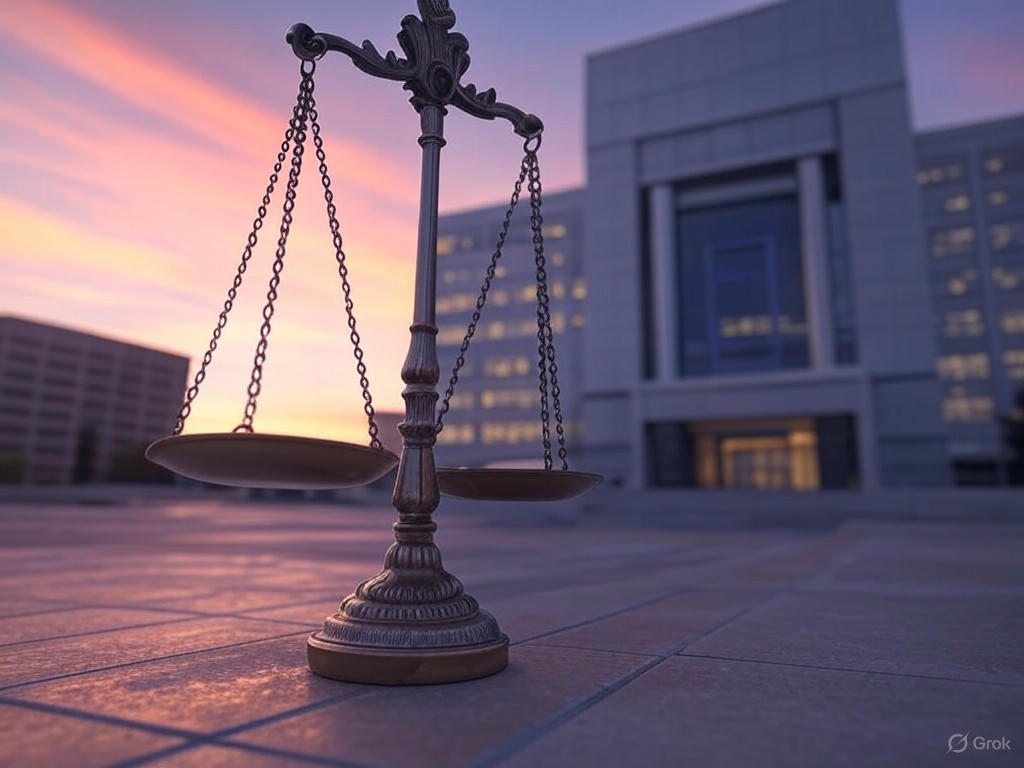
Trump Doubts US Due Process Entitlements
Introduction to the Trump Due Process Debate
President Donald Trump recently stirred widespread discussion by questioning whether due process protections extend to both Americans and non-Americans under the US Constitution. His remarks during a high-profile interview have highlighted ongoing tensions around the Fifth Amendment, drawing sharp reactions from critics and supporters alike. This piece dives into the details, offering context, historical insights, and a look at what this means for everyday rights in America.
Understanding Due Process in the US Constitution
What is Trump Due Process and Its Core Principles?
At its heart, due process is a key safeguard in the US legal system, outlined in the Fifth and Fourteenth Amendments. It ensures that no one loses their life, liberty, or property without fair legal proceedings, protecting individuals from arbitrary government actions. For instance, this means hearings must be impartial, evidence properly reviewed, and decisions based on facts rather than bias.
Trump due process, in this context, refers to the scrutiny around how these protections apply amid the president’s comments. Procedural due process focuses on the steps taken in legal matters, like providing notice and a chance to be heard, while substantive due process guards fundamental rights that can’t be infringed without strong justification.
Who Benefits from Due Process Protections?
US courts have long held that due process applies to all “persons” in the country, not just citizens, based on landmark rulings. This includes immigrants, visitors, and even those facing deportation. Imagine a non-citizen worker wrongly accused of a crime; they still deserve a fair trial to uphold justice.
Yet, debates over Trump due process raise questions about potential limits in areas like national security or immigration. Legal experts emphasize that these rights form the backbone of fairness, ensuring no one is overlooked regardless of background.
Trump’s Controversial Comments on Due Process
Key Moments from the Interview
In a candid exchange on NBC’s “Meet the Press,” Trump was asked point-blank if due process covers non-citizens as well as Americans. His response—”I don’t know”—and follow-up admission that he’s “not a lawyer” fueled intense backlash. This moment underscores how Trump due process has become a flashpoint in broader political conversations.
Critics point to cases like that of Salvadoran national Kilmar Abrego Garcia, who faced wrongful deportation, as real-world examples of why clear due process is vital. Have you ever wondered what happens when leaders downplay these rights? It can lead to hasty decisions that erode trust in the system.
President Trump stated, “I don’t know” when questioned about due process entitlements for non-citizens.
Broader Policy Fallout and Public Backlash
These comments surfaced as Trump neared key milestones in his administration, amplifying concerns about immigration policies and criminal justice reforms. Opponents argue that ambiguity around Trump due process could enable unchecked actions, potentially affecting millions in vulnerable situations.
Public reaction has been swift, with social media debates and protests highlighting the issue. For everyday people, this means staying informed and advocating for clarity in how laws are applied—after all, due process isn’t just for headlines; it impacts real lives.
Historical and Legal Background of Due Process
The Fifth Amendment’s Scope and Evolution
The Fifth Amendment has been a pillar of American law since the Constitution’s inception, guaranteeing due process for all. Supreme Court decisions, like Yick Wo v. Hopkins in 1886, extended these protections to non-citizens on US soil, setting a precedent that still holds today.
Through Trump due process discussions, we’re reminded of how this amendment adapts to modern challenges. Historically, it balanced individual freedoms against government powers, evolving through wars, civil rights movements, and policy shifts.
Challenges and Controversies in Applying Due Process
Not every scenario is straightforward; due process can vary by context. For example, in criminal trials, full protections apply, but immigration hearings might have restrictions, leading to debates over fairness.
| Issue | For Citizens | For Non-Citizens |
|---|---|---|
| Criminal Trials | Comprehensive rights | Generally full, with exceptions |
| Immigration Matters | Strong protections | Limited but essential safeguards |
| Deportation Cases | Fully protected | Protected with potential restrictions |
Notable Cases Highlighting Due Process Concerns
Incidents like the Kilmar Abrego Garcia deportation illustrate the human cost of due process lapses. Other examples include challenges to executive orders on travel bans, which courts struck down for violating these principles.
In the age of Trump due process scrutiny, these cases serve as cautionary tales. What if similar oversights happened to you or someone you know? They remind us why vigilance is key.
Implications for Justice and Governance
The Risk of Eroding Trump Due Process Rights
When leaders question foundational rights, it creates ripples across society. Advocates warn that this could lead to broader erosion, making it harder for individuals to defend against injustice. For instance, if due process standards slip, even routine legal proceedings might become less reliable.
This isn’t just theoretical—it’s about real-world outcomes. Strong Trump due process safeguards ensure accountability, preventing abuses that could affect anyone.
Societal and Political Responses
Civil rights groups and experts have voiced strong opposition, fearing that rhetoric could translate to policy changes. There’s been a surge in activism, with calls to reinforce constitutional commitments.
- Concerns over executive power growing unchecked.
- Efforts to educate the public on their rights.
- Strategies for supporting affected communities.
As someone following these events, you might ask: How can we push for better protections? Simple steps like engaging in local discussions or supporting advocacy groups make a difference.
The Ongoing Debate: Balancing Rights and Security in the Trump Due Process Era
Weighing National Security Against Civil Liberties
America has always juggled security needs with individual freedoms, and Trump due process brings this into sharp focus. Policies on surveillance or border control often spark debates about where to draw the line.
Consider a hypothetical: What if enhanced security measures overlooked due process, leading to wrongful detentions? Experts argue for a balanced approach, ensuring policies don’t sacrifice core rights.
Insights from Legal Scholars
Scholars emphasize that rights act as “trumps,” prioritizing individual protections over other interests. A study from Columbia Law highlights how undermining due process could backfire, affecting all citizens in the long run.
“Rights as trumps” means individual liberties should prevail in key situations, according to legal analyses.
Conclusion: The Importance of Due Process Today
Due process remains essential for a just society, and Trump’s comments serve as a wake-up call to defend it. By understanding and upholding these principles, we protect not just citizens but everyone under US jurisdiction.
In the end, it’s about maintaining the rule of law for future generations. What are your thoughts on this ongoing debate? Share your views in the comments below.
Further Reading and Resources
- Full coverage of Trump’s comments and the debate
- In-depth legal analysis on rights as constitutional trumps
- The text of the Fifth Amendment
References
- LiveNOW from FOX. (n.d.). “I don’t know”: Trump on due process and the Constitution. Retrieved from https://www.livenowfox.com/news/i-dont-know-trump-due-process-constitution
- Greene, A. (Year). Rights as Trumps. Columbia Law School Scholarship. Retrieved from https://scholarship.law.columbia.edu/context/faculty_scholarship/article/3925/viewcontent/Greene_Rights_as_Trumps.pdf
Trump due process, US Constitution, Fifth Amendment, citizen rights, non-citizen rights, constitutional debate, Trump comments, due process protections, legal safeguards, justice system reforms






